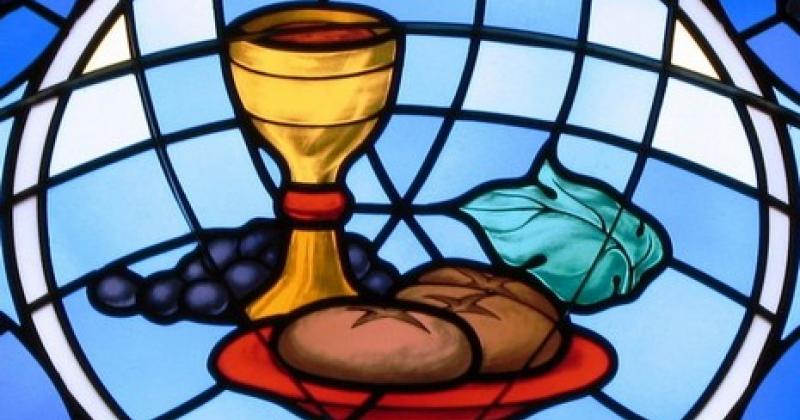To the crowds which were after Him, Jesus said: “I am the bread.” The angels’ bread. The bread for the road. Bread “that came down from heaven".
It is that very bread which He is shortly going to take. As He took friendship. As He took sadness. As He took death. With both hands.
He will bless it. He will break it. And while breaking it, He shall feel all of the shreds of the world. A world which He is going to love “to the extremity of His folly", the poet Charles Le Quintrec will write.
That broken bread, He will make travel around the table, just as He had traveled in the desert. Because it is a bread of exile. A bread of haste. A bread for crossing.
When each one holds a piece in his hand, He utters these words, immense, impossible, which chafe Him even as He speaks: “This is my body, given for you.”
What did he just say? This bread, it is my body. This bread, it is my person. This bread, it is my identity. This bread, it is Me. No! That’s too incredible! And even more incredible: “Take it, and eat it all of you.”
Eat it! Eat me! Eat me, so that I may live in you. Eat me, so that I may fill you. Is that, then, what we call a devouring love? An enormous cannibalistic desire? To live, must one eat the other? And let oneself be eaten? To offer oneself totally? To offer oneself even unto death.
There lies the great mystery of faith: in eating Him, I become many. He does not multiply the bread only. He multiplies me. He magnifies me. He widens me. Eternally. “Whosoever chews this bread shall live forever.”
If He offers Himself to be eaten, it is so that we might act. To commune with Him, the excommunicated One, is to resist. To eat Him, is to take action. That the blind may see. That the deaf may hear. That the Good News may be proclaimed to the needy.
Then He takes the wine.
The wine of the Our Father. The wine of the Beatitudes. The wine of the Golgotha.
With both hands.
He says grace and pronounces these words over the cup which opens a huge rift in them: “Take this and drink. This is my blood.”
He stops, and then resumes: “It shall be shed for you.”
This is folly!
This is murder!
To drink the blood!
The blood of another.
To empty him of his blood.
This is a major taboo.
He could have been arrested for incitement to vampirism.
His disciples were transfixed. Yet, it was not the first time. He had already said, a while before that: “Whosoever eats my flesh and drinks my blood will have eternal life.”
And that had provoked such havoc that many, at that time, had ceased to be seen with Him. The hemorrhage was such that He had felt the need to put forth a question of trust to those close to Him: “Do you wish to leave, you also?”
And they stayed until that evening, when He risked making them stumble, or worse. As He felt them wavering — as He also was wavering — He thought to add:
“This is the blood of the covenant.”
To drink it is to wear it on one’s finger. A ring of blood.
“Poured out for you.”
The good blood of Cana.
And “for many".
The wounded blood of the whole of mankind.
“So as to heal the fractures.”
Just as did the Good Samaritan’s oil on the side of the road.
The cup goes around for a long time. Each one takes it, contemplates it, and brings it to his lips, sometimes in trembling. When it comes back to Him, He adds this word, so simple in audacity, and which will traverse the centuries:
“You will do this in memory of me.”
